The fun holiday about impaling people in Iran

Dive into some Persian history with me! This year, Purim feels more relevant than ever, since some extremely similar events recently took place, so I thought it would be fun to have a history-nerd moment and dive right into the world of Persia in the 5th century B.C. and really get to the bottom of the Book of Esther. As for why it’s relevant for today – wait till the end.
When it comes to huge empires ruling the Middle East and replacing one another, we have Assyria – Babylon – Persia – Greeks – Rome. So the Persian era is right in the middle of it all, and chronologically it’s pretty much at the very end of the Old Testament.
General overview of them:
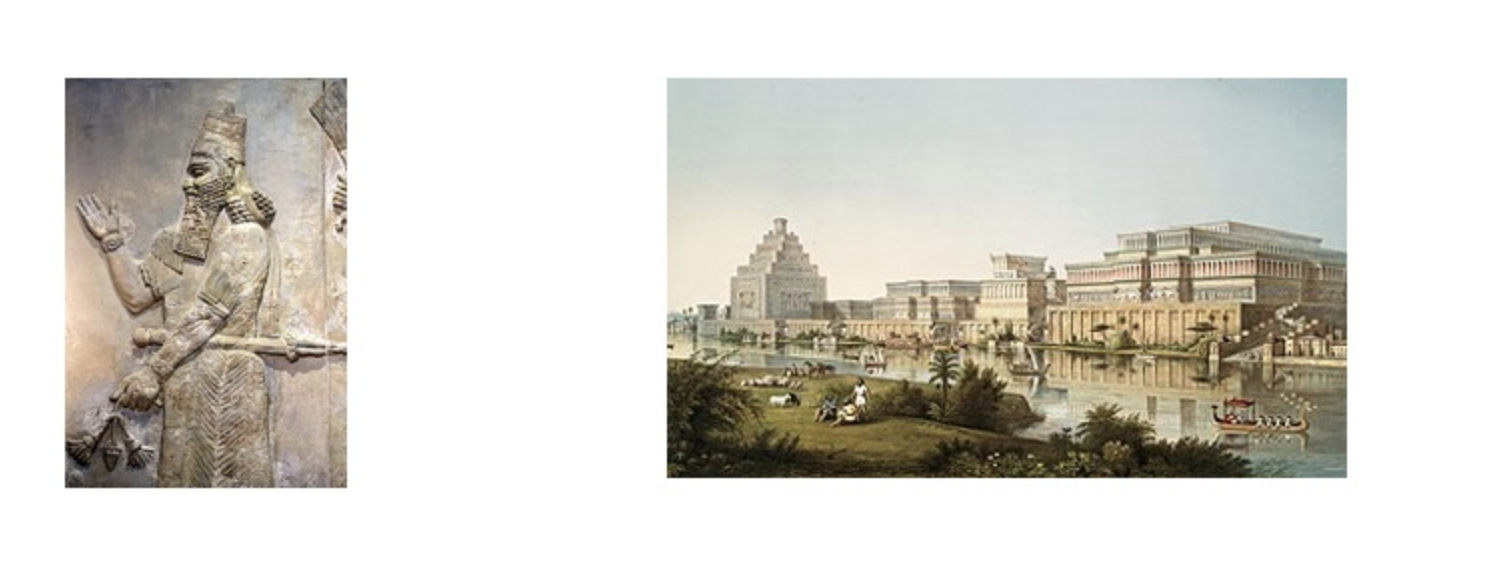
Assyria – Capital Nineveh. They destroyed the northern kingdom, Israel, in 721 B.C. but weren’t able to take Judah or Jerusalem. (The fact that Jonah had gotten Nineveh to repent back in 785 didn’t help). They were destroyed by Babylon in 612 B.C.
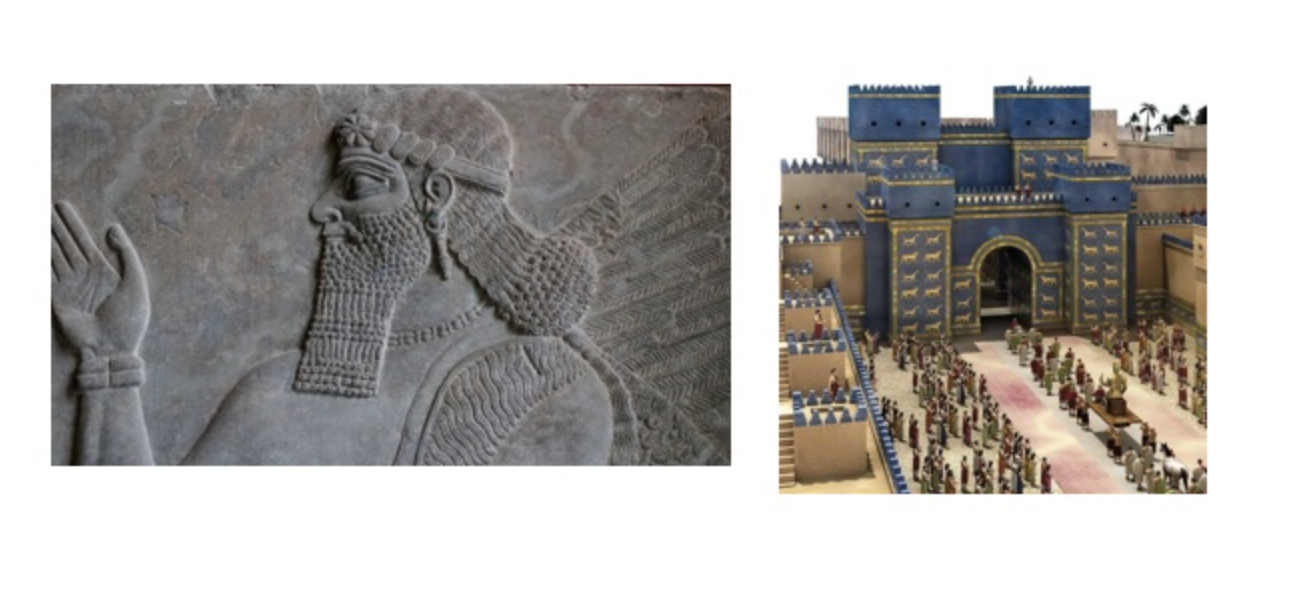
Babylon – capital with the same name. They destroyed Assyria in 612, and then conquered Judah, the southern kingdom, in 586 B.C. and burned down Solomon’s temple. They were destroyed by the Persians in 539 B.C.
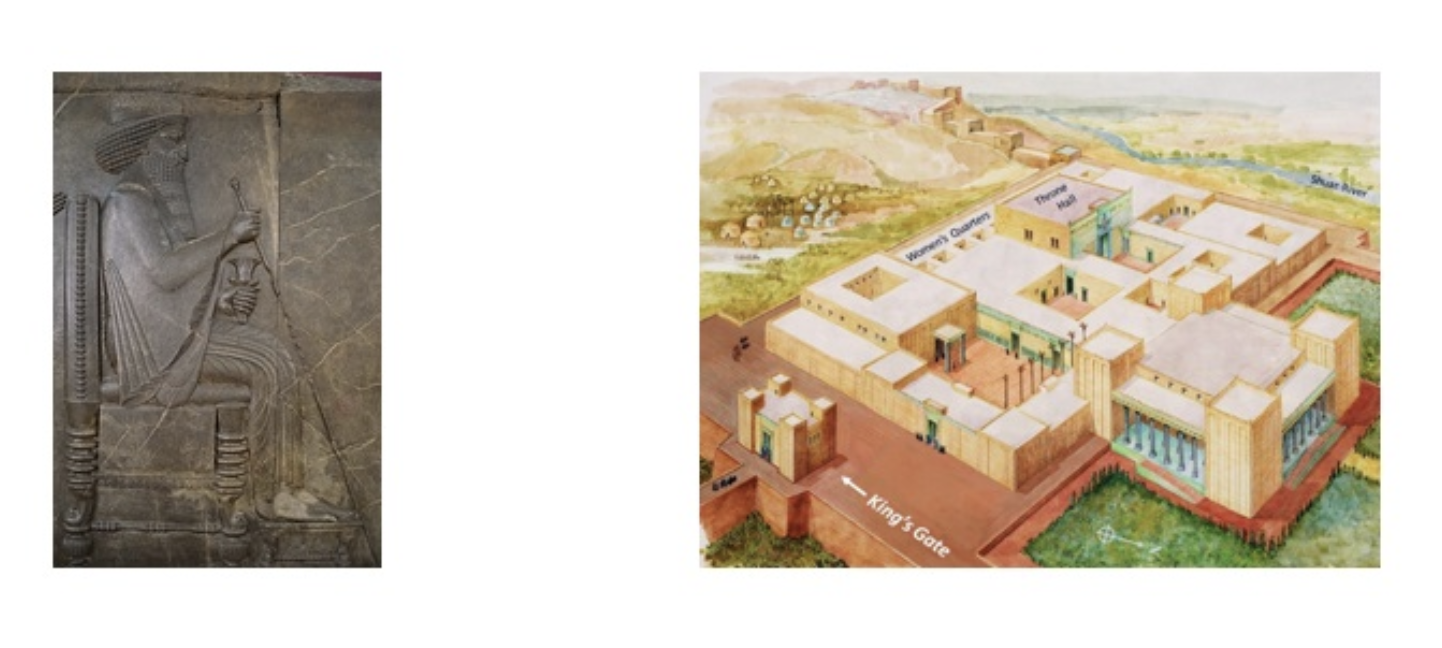
Persia – they had a bunch of capitals, Persepolis and Susa being some of them. They conquered Babylon in 539 B.C. and allowed the Jews back to Israel to rebuild the temple. They were destroyed by Alexander the Great in 330 B.C. So they had a good run of about 200 years.
We can leave the Greeks and the Romans for some other time; these three are the important ones for now.
If we go back to Moses, and read the last few chapters in Deuteronomy 29 to 32, we see how God puts before the people of Israel this deal. Either keep my law and I will bless you. Or turn away from me and I will curse you. But even if that happens, and I curse you and throw you away from the land – I will still eventually bring you back. God, of course, knew, and even told Moses, that the second option would come to be. And in Deuteronomy 31:18, he says about that time: “I will surely hide My face in that day.” The Hebrew word used here is “Ester” – I will hide. And doesn’t it indeed seem like God is hidden, working behind the scenes throughout the book of Esther? I’ll get back to that point soon.
In fact, I claim that “the 400 years of silence” between Malachi and John the Baptist, when God didn’t send any prophets at all, really started already in 586 with the destruction of the temple, which would align with this prophecy. Only that he did it gradually. In 586, there were three Biblical prophets alive whom God allowed to keep prophesying until their death – Jeremiah, Ezekiel, and Daniel. But after them? Almost complete silence except for three minor prophets, Haggai, Zecharya, and Malachi. So from 586 until Malachi God is gradually making himself more and more hidden – and the book of Esther occurs right in the middle of that.
Still not convinced? Compare these three verses:
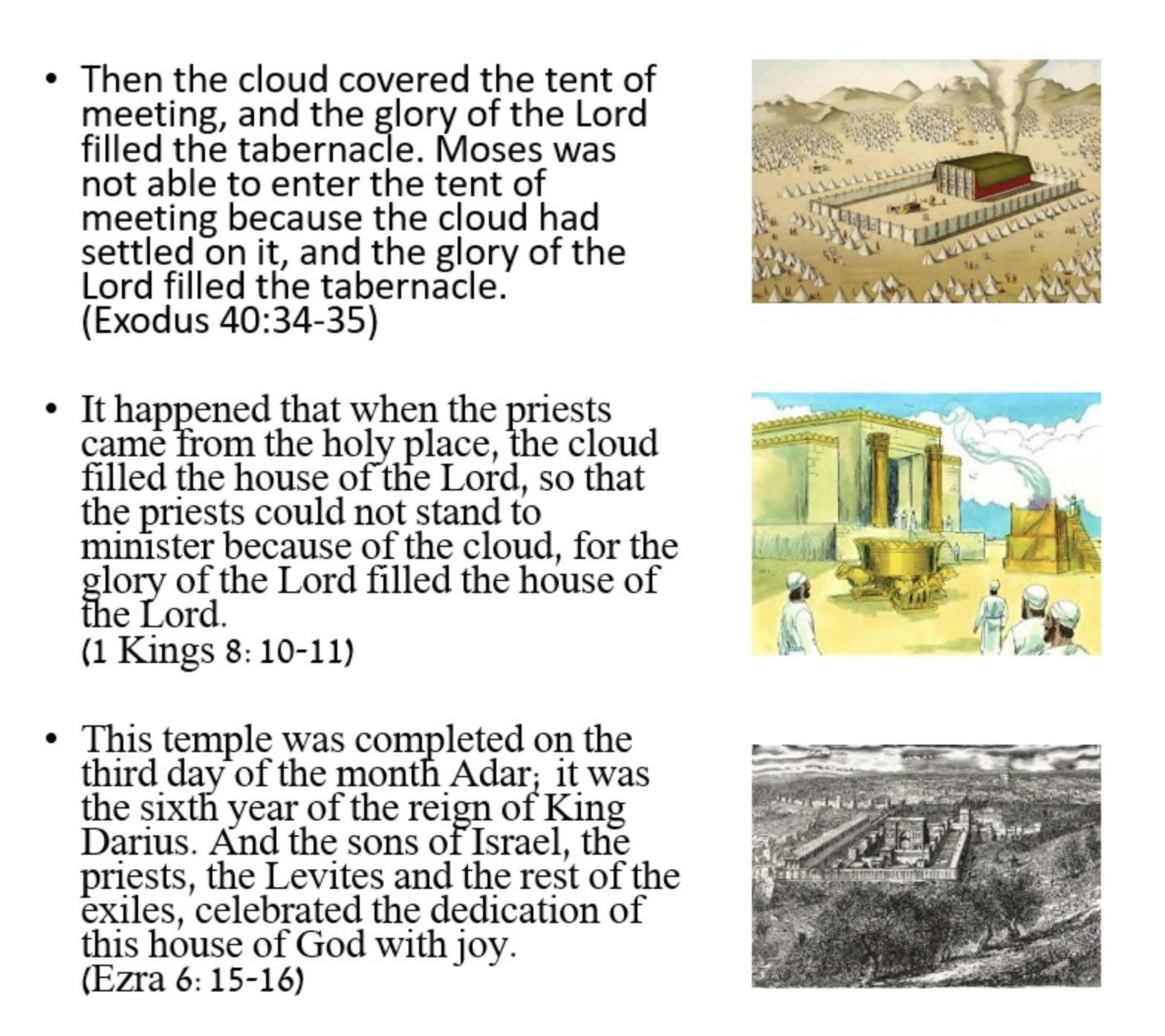
Is anyone else noticing the cloud missing in the verse in the third verse? I can almost imagine Zerubbabel and Joshua there. “Alright, we did everything right, and dedicated the temple, so that cloud should appear soon. … Uhm… any time now. … So… alright… huh… well… did we do everything right? I think we did, no? Is the… is the menorah in the right spot? All the oil is good? Alright, alright… uhm… well, I guess there’s no cloud this time then.”
Now God never ever leaves his people of Israel – but he became a lot less obvious. Instead of seeing him moving and acting directly, in the book of Esther, we instead see the most incredible things happen by coincidence – or not so much by coincidence.
And that’s what we see today too. But more about the parallels to the State of Israel later.
I’m going to assume you are familiar with the story of the Book of Esther. But do you know where it fits in with the Old Testament story chronologically? I didn’t, until just recently. But if you want to read the historical books of the Persian era in chronological order, you’d read Ezra 1-6, then Esther, then Ezra 7-12, and then Nehemiah.
Altogether there are four Persian kings mentioned in the Bible. They are:
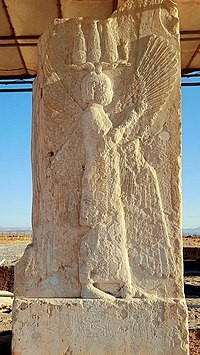
Cyrus the great.
Ruled Persia 550 – 530 B.C.
Persian name: Kurush
Hebrew name: Koresh כורש
Greek name: Kyros Κῦρος
Appears in the Bible: Daniel 5-6, Ezra 1-4
Conquered Babylon in 539 B.C.
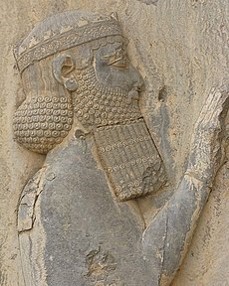
Darius the Great.
Ruled Persia 522 – 486 B.C.
Persian name: Darayawahus
Hebrew name: Daryavesh דריווש
Greek name: Dareios Δαρεῖος
Appears in the Bible: Ezra 5-6
Grabbed the throne under suspicious circumstances and was really, really keen to prove his legitimacy. More on that later. Married Atossa, Cyrus’ daughter. Failed to conquer Greece and lost at the battle of Marathon.
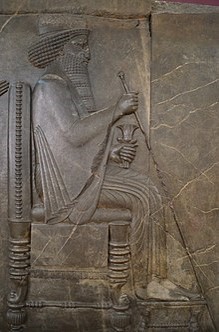
Xerxes I
Ruled Persia 486 – 465 B.C.
Persian name: Khshayarsha
Hebrew name: Achashverosh אחשוורוש
Greek name: Xerxes Ξέρξης
Appears in the Bible: Esther
Son of Darius and Atossa. Tried to conquer Greece and failed in 480 B.C.
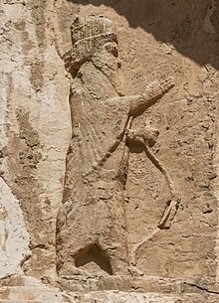
Artaxerxes I
Ruled Persia 465 – 424 B.C.
Persian name: Artaxshacha
Hebrew name: Artachashasta ארתחשסתא
Greek name: Artaxerxes Ἀρταξέρξης
Appears in the Bible: Ezra 7 – 12 and Nehemiah
Son of Xerxes.
So there you have them. Now, whenever you see the Bible saying this and that year of the reign of this and that king, you’ll know to place it.
[Sidenote, feel free to skip – why is Daniel speaking of King Darius? In Daniel, the mentioned king is “Darius the Mede,” not the later Persian king. We don’t have any extrabiblical information about who “Darius the Mede” is, but we can assume he was a lesser king who ruled locally in Babylon under King Cyrus after the Persian conquest.]
[Sidenote 2: Ezra 4 is a bit confusing because in that chapter he temporarily jumps forward in time to Xerxes and Artaxerxes, and then back again to the present story-time of Darius.]
When Cyrus died, and his son took over, that son suddenly died from an infection from a spear wound, and mysteriously enough, his spear bearer, Darius, became king… huh.
Of course, he explains everything. “Nonono, it’s not what it looks like. It was indeed very sad, very sad indeed that he died. But since I am a relative of Cyrus, I totally need to become king now, because my grandpa was a cousin of Cyrus’ dad, so…”
“Uhm… but what about that second son of Cyrus, shouldn’t he be king?”
“What second son? Stabs him Oh, him? Nonono, that wasn’t Cyrus’ son. That was an evil wizard who shapeshifted himself into looking like Cyrus’ son. Phew, you guys are really lucky I killed him now and saved you from his evil rule. Anyway, I’m king now.”
And just to make sure that everyone got that story and really really believed it, he made sure to carve the whole story into the mountainside so no one would have any doubt whatsoever. If your passport allows you to visit Iran, you can still see it in Behistun. My Israeli passport won’t let me go there for the foreseeable future.
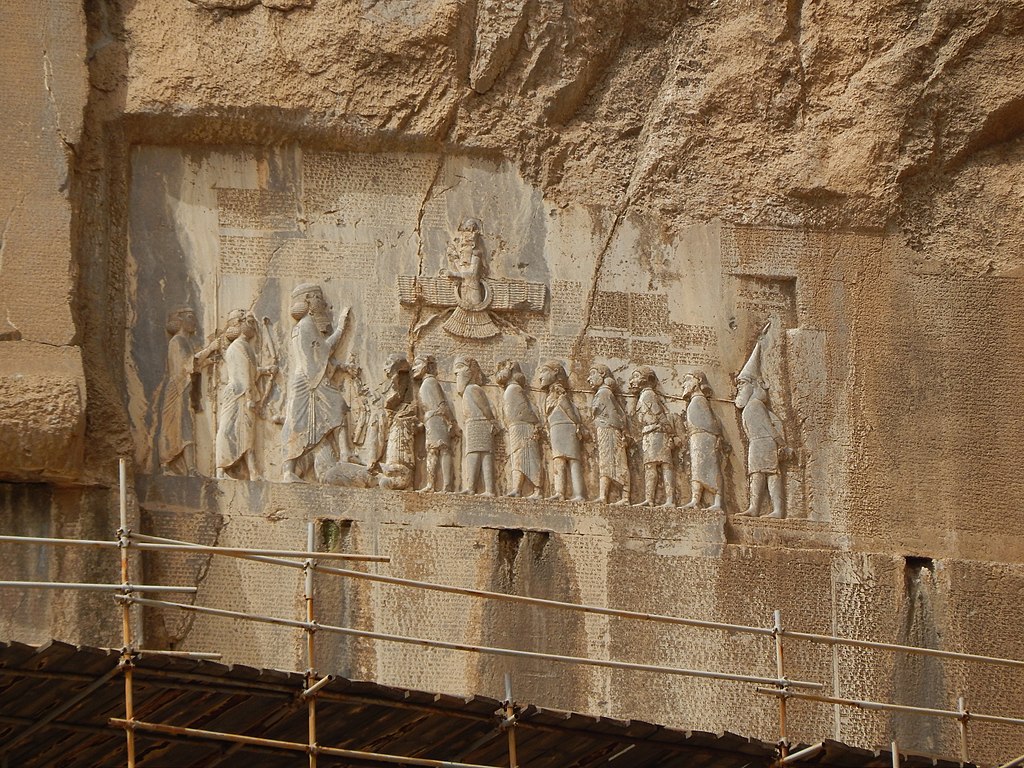
Now, with this in mind, read Ezra chapter 6. Zerubbabel and Joshua finally got started on building the temple again, egged on by the prophets Haggai and Zecharia, and their enemies complain to the king, and they write to the king that they are acting in accordance with Cyrus’ order. Darius sends his bureaucrats off to find Cyrus’ decree, and when they find it – boy, is Darius eager to make sure this temple gets built. Because hey, I’m the legitimate heir of Cyrus, don’t let anyone tell you otherwise, whatever he decreed I decree. And that’s how the second temple is finally finished. Ezra 6:15 says this was in the sixth year of Darius which is… 516 B.C.
Exactly 70 years after 586 B.C. How about that? I won’t pull that thread right now if you want to climb down that rabbit hole, open to Jeremiah 25:9-13 and Daniel 9:1-3. I’m gonna keep going with Esther if that’s ok.
Just one more thing about Darius before we go into the book of Esther – notice his letter in Ezra 6 also about impaling people who defy the edict which reminds us of how Haman ended up. (Ezra 6:11). Also keep in mind that the whole problem in Esther that even the king can’t cancel a law once it’s been made, comes from here. Darius really needed to show how totally on board he was with everything Cyrus decreed, so he made it illegal to cancel existing laws.
Alright, let’s jump over to the rule of Xerxes and the book of Esther. Chapter One occurs in his 3rd year, which is 483 B.C. Back in Jerusalem, the temple has been doing its thing for 33 years by now. Xerxes doesn’t really care about that, he is focused on conquering Greece. The war he lost in 480 B.C. is 3 years into the future, and this feast he is holding is really a council where they are making the decision to go to war (and then spent three years preparing for it before losing it). So chapter 1 in Esther has this atmosphere of “I’m the king of the world, I’ll conquer everything.” He is arrogant, he’s on top of the world, he has already defeated a few rebellions in Egypt and Babylon, and while a bit drunk, he asks one of his wives, Vashti, to come before the other men, wearing her crown.
Ok, I don’t know how you read that, but… did you notice that he didn’t tell her to wear… anything else??? Sounds really not ok to me…
Vashti says no, of course. Buddy, you’re drunk, calm down, we’ll talk tomorrow. But Xerxes gets all puffed up. “She humiliated me in front of all these people, how do I gain back my dignity?”
How about not acting like an idiot, Xerxes, have you considered that? A leader should know to stay away from judgment-compromising substances like alcohol when making important decisions, and they should definitely avoid any kind of stupid “honor” games in that situation.
And then his advisor, Memukan, gives the stupidest advice ever. “Hey, I know she humiliated you in front of a few people sitting here, who mostly will just forget it in a day or two. And of course, we could just let it go, and in a week no one will remember. But how about, instead, we write letters and tell EVERYONE in the empire about what happened, so everyone will remember it forever, and even in another 2,507 years from now there will be a stupid blogger called Tuvia Pollack who will be sitting in front of a computer in Jerusalem and write about this incident, how about that?”
Memukan doesn’t care about Xerxes’ honor. He just wants to remove an obstacle. The less people have access to the king, the higher his influence will be. Access to the king was an extremely valuable asset – and remember that, because that’s a motif that returns when Esther goes into the king’s presence uninvited much later. Memukan adds “Give it to someone else better” – probably having his daughter or a close relative in mind.
And then, from chapters 1 to 2, we jump 4 years into the future (according to verse 16). This means that it’s 479 B.C., and Xerxes has lost against the Greeks, lots of officers who were at that banquet are killed (maybe Memukan among them – he’s not mentioned again), and he has had a major sexual scandal with his niece. Right now his brother (the dad of that niece) is preparing a rebellion against him in Bactria (Afghanistan). And also, his main queen, Amestris, has mutilated people whom she sees as a threat, which is never a nice thing to do. So the Xerxes we meet in Chapter 2 is broken. He is not the “I’ll conquer the world” guy we see in Chapter 1.
What do you do with a broken king? You cheer him up because the entire empire is at stake. His being in a bad mood can have disastrous consequences. So they arrange a very weird beauty contest.
And now we meet Esther and Mordechai. First of all, what are they doing here in Susa? Why are they not in Jerusalem? Well, that’s kinda like asking why there are Jews in New York today. Because it’s their home, and it’s the center of the world, and they have no reason to move anywhere, that’s why. And they have perfectly Babylonian Persian names. Mordechai after the Babylonian god Marduk, and Esther after the goddess Ishtar. The original reader would hear about Mordechai and Esther living in Susa, and it would be like us reading about a couple of Jews living in New York named Bob and Carol. These are total gentile non-Jewish assimilated names. But by total coincidence – or not so much by coincidence – Esther just also happens to be the Hebrew word “I will hide” that God used in Deuteronomy 31.
I'm assuming you know the story. Esther wins this stupid beauty contest by coincidence – or not so much by coincidence. Which was really not a beauty contest… I mean, come on, they all go to the king in the evening and leave in the morning. Each and every one of these young virgins. And just because he had picked Esther, it didn’t mean he ended it and told all the others to go home. Nope, according to verse 19, he kept going. Today we would call this trafficking, and it’s extremely disgusting.
Xerxes might think he is royal and manly with all his alcohol and sex, but he’s really making himself a slave to his desires. The only one acting like a real man in this story is Mordechai. He is helpless against the king, but he still won’t leave Esther’s side, he gives her advice on how to handle the situation, and when he hears about a conspiracy to kill the king – even though he probably was mad at the king and it might have been tempting to shut up about it – he chose to do the right thing. Now, that’s true manhood.
Another less-than-a-man enslaved to his desires we see popping up is Haman, at the beginning of Chapter 3. Only that his desires are not alcohol and sex, but honor and power. Even if he is the richest man on earth, second to only the king, and almost everyone bow down to him – it’s not enough as long as one dude refuses. One dude and it ruins his mood forever, so much that he must commit genocide. Come on, dude, what’s that about? (Esther 5:11-13).
So, this is where I would go into the whole issue of Haman being an Agagite, descendant of Agag king of Amalek, and Mordechai is probably a descendant of King Saul, and show the parallels with 1 Samuel 15, Exodus 17:8-14, and Deuteronomy 25:17-19, but this blog post is already getting too long. Suffice to say that Haman and his sons were the last biological Amalekites, but the spirit of Amalek is still in the world. It’s the antisemitic enemies of Israel who attack the Jews by killing the weak, the children, the elderly, and the sick. We saw it in the Crusades, we saw it in the holocaust, we saw it in Palestinian terrorism, and we saw it on October 7th. It’s the Satanic spirit that wants to destroy Israel. Why? To make God a liar. In Jeremiah 31 he promised that the Jewish people would exist as long as the sun is rising and setting. If Satan can eradicate the people of Israel, he has effectively ruined God’s plans. It was true before Jesus, when it would’ve cut off the seed of the woman and made Jesus never be born. But it’s also true after Jesus, because God didn’t replace his people, and the Jewish people still have a key role to play in God’s plan.
When we read the end of Esther 2 and the beginning of 3, it’s pretty clear that Mordechai deserved that position, and the king neglected it. Not only neglected, but gave it to an Agagite. We can expect that he will find an excuse to genocide the Jews at any moment now. Aaaaaand there it is, Mordechai won’t bow down. Alright, sure, yes, that’s a perfectly good reason to genocide an entire people. There’s just something so warped about the logic of the antisemites. Do they think we don’t notice how they’re just looking for an excuse? If Mordechai had bowed, Haman would’ve found another excuse. Just like people blamed the 2nd intifada on Ariel Sharon going up on the temple mount. Or how they blame worldwide antisemitism now on Israel. “If only Israel didn’t commit war crimes in Gaza we wouldn’t attack these synagogues.” Come on, we all know you’ve been antisemitic this whole time, and you were just looking for a good excuse to lash it all out. The way they keep blaming us Jews for antisemitism over and over again is mind-boggling. I’ve never heard of Russian Orthodox churches being attacked because of Russia’s war in Ukraine, have you? Yet somehow, as soon as it’s Israel, all Jews are to blame.
Anyway, sorry for that sidetrack. Haman waits with this murmuring and bitterness for five years. Five – fricking – years. In Chapter 3, we see in verse 7 how he throws the pur, the lot, and asks Xerxes for permission to commit genocide in his 12th year, which is 474 B.C. This is 9 years later than the banquet in chapter 1. Xerxes is 44 years old now, not as young 35-year-old as he was back then. And not that it has anything to do with anything, but just four years after all this, a man named Socrates was born in Athens.
The antisemites have time. Hitler waited from 1933 to 1939 to start his genocide. Hamas kept Gilad Shalit captive for 6 years. They planned the October 7th attack meticulously for many years. They have the willpower and the patience, and they’re ready to wait as long as it takes. After all, it’s about killing Jews, it’s important. Can’t take this lightly.
I’ll assume you already know the story, so let’s jump to Chapter 4 when Mordechai persuades Esther to help. We might read this with our modern brains and think “What’s the big deal? It’s your hubby, just go talk to him.” Yeah, not that simple. She’s not the main queen, and she’s been married to him for five years, so he’s probably busy with younger and newer wives at this point. She hasn’t seen him for 30 days. Remember how I talked about how valuable access to the king was? It was, in fact, so valuable, that Xerxes’ dad, Darius, had a close friend brutally executed for breaking protocol in that regard. Maybe specifically because it was a close friend, to set an example. So no, the fact that she’s the queen doesn’t work in her favor here – in fact, it might do the exact opposite. He deposed Vashti for a lot less than that. Also, we don’t know how much he has been listening to Haman. Don’t try this at home, but if you listen to too much antisemitic conspiracy theories for too long, you eventually start to believe it. She could go in, and he’ll say “Wait a minute – you want me to spare the Jews? That’s exactly what a secret Jewess would say.”
But she does take this huge risk, and saves not only the Jewish people but humanity. If Haman’s plan had gone through, there would be no Israel and no Jesus 474 years later. The temple in Jerusalem would have been demolished pretty quickly (Esther 3:13 is pretty clear – all the Jews in all of the king’s provinces and plunder all their goods).
But then, as you know, there’s a complication that jumps in. A time-crunch. Esther invited Xerxes to a banquet and then another one. And in between those two banquets, Haman just decides that he can’t wait for the month of Adar to come around. He wants to kill Mordechai tonight, and he arranges to raise the pole on which he will impale him. Without God’s intervention, Esther would’ve come to the second banquet with Mordechai already dangling in the air.
But by sheer coincidence – or not so much by coincidence – that specific night the king can’t sleep. And out of all the thousands of archived stories he has, they just happen to read to him about how Mordechai saved his life five years earlier. And Xerxes has enough character to want to make things right, let’s at the very least give him credit for that.
The funny episode with Haman forced to honor Mordechai becomes a foreshadowing for Haman about what awaits him, and indeed – the second it’s over, he is dragged to the second banquet where his fait is sealed. Right at that second banquet by coincidence – or not so much by coincidence – Xerxes has Mordechai saving his life fresh in his mind, and realizing what Haman had planned makes him furious.
Haman is hanged on the very same pole he had arranged for Mordechai. And this is at the heart of Purim – what they tried to do to us, happened to them. In Hebrew, it’s called “veNahafoch hu.” Best translated maybe as “And it became the opposite.” It’s in Esther 9:1, the NIV translates it as “and the tables were turned.”
This is already getting too long, so let’s finish with my point. God is on the side of the Jewish people and the Land of Israel. Always has been, always will be, whether they follow Jesus or not. A Christian who doesn’t get that does not understand who Jesus is. And when someone turns against the apple of his eye, God’s wrath comes upon them. It happened to the Egyptians, it happened to the Amalekites, it happened to Haman, it happened to the Germans.
And it happened to the Palestinians in 1948. It’s called the Naqba.
The last few chapters of Esther are not a fun read. They make us uncomfortable. They’re about how the edict on the genocide couldn’t change, so Mordechai had to add a new edict – that the Jews were allowed to defend themselves and kill whoever wished to attack them. And that’s exactly what happened. Chapter 9 goes through how the Jews killed hundreds of those who wished them harm only in Susa.
That also happened in 1948. It’s also what’s happening in 2024 in Gaza. Yes, I said it. (Most people won’t read this far anyway).
Not many people know this, but I had it verified through a historian. There were plans for a holocaust in Israel. In 1942, the German troops were going through North Africa, reached Egypt, and prepared to conquer Palestine. The southern flank of the German troops in Russia would have come from the other direction after defeating Stalingrad.
The great mufti of Jerusalem, Hajj Amin El-Husseini, who was a buddy of Hitler and had visited Auschwitz to see up close how they dealt with the “Jewish problem” had already set up a place near Jenin for the Palestinian concentration camp. At the time there were half a million Jews in Israel. They had already killed millions in Europe. What’s another half million? The German colonel Rauf was in Athens with 24 men awaiting orders to get on a boat and go to Palestine to set it up. Why only 24? Because they didn’t need that many men. The local Arabs would do most of the work and be the guards in the concentration camp.
veNahafoch hu.
The Nazis were defeated in El-Almein and Stalingrad, and six years later, in 1948, those who were supposed to be our guards in the concentration camp became refugees. Now notice in the book of Esther – someone could easily have said, “Hey, those evil Jews are killing a lot of people for no reason at all. No one actually genocided them. The fact they had theoretical plans is not an excuse.” We get the same talk about the 1948 Naqba. We apparently “can’t prove” that five Arab armies attacking us from all sides saying they want to throw us into the sea was an existential threat.
And we hear the same about the Gaza war of 2023-2024. You hear claims like “The 7th of October is not enough reason to kill tens of thousands of Palestinians.” Sorry, but it actually is. They tried to commit a genocide on October 7th, and only succeeded partially. They had brought with them food and weapons designed to stay for weeks. They had planned to occupy Israeli territory and keep going, reaching Hebron, and cutting Israel in half, hoping that the West Bank Palestinians, the Israeli Arabs, Iran, Hizbullah, and the Houthis would join them in the annihilation of Israel and genocide me, my family, and everyone I love. So yes, I kinda take it very personally. And the current war in Gaza, as bad as it may seem, is making sure that they can never ever do that again. It breaks my heart to see all the suffering. But when I hear that 71% of them support the Oct 7th massacre, and that Hamas’ support has increased since the start of the war, I choose to look the other way and pray a silent prayer for the innocent 29%. I have nothing but love and respect for the Arabic language and the Arab culture, and I hope we can somehow live here in peace one day. We never wanted this war. They brought it upon themselves.
And in a way, that’s what Purim is about. How God takes the enemy’s plans and makes whatever they planned for us happen to them instead. This happens over and over in the Bible, and in history, and the most incredible one of all was on the cross.
We are all sinners and deserve God’s wrath – veNahafoch hu. God put all our sins upon Jesus and gave us his righteousness. Of all the turned tables throughout history, this is the most amazing one.
How did things end for Xerxes? Nine years after the events he was assassinated, and his son Artaxerxes took the throne, executing the murderers. This is his grave:
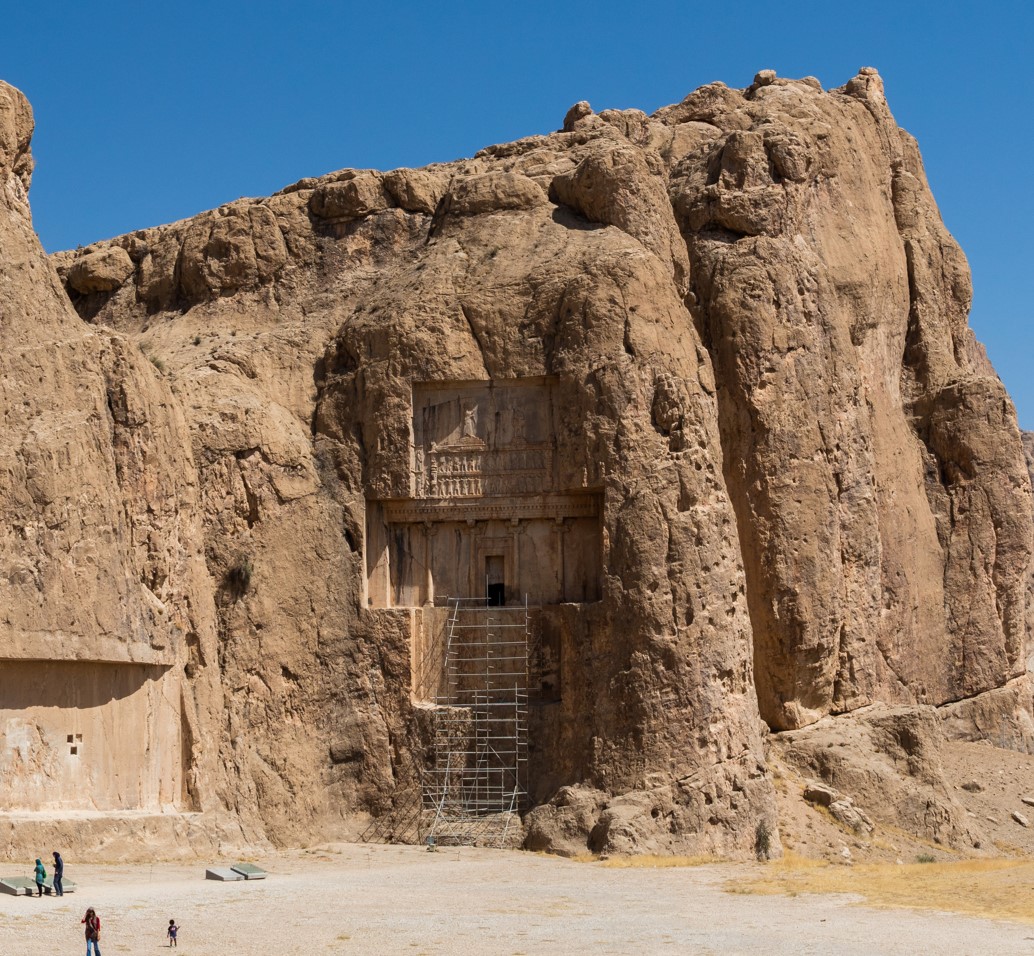
Artaxerxes would’ve been a young boy or man during the events of Purim and probably remembered Esther and Mordechai. In his 7th year (458 B.C.) he allowed Ezra to go to Jerusalem to rebuild the people spiritually, and in his 20th year (445 B.C.) he allowed his personal cupbearer, Nehemiah, to go to Jerusalem and rebuild the walls. The last parts of the book of Nehemiah occur in his 34th year (431 B.C.) and that’s chronologically the very last part of the Old Testament. Just one century later, Alexander the Great arrived and killed Xerxes’ last descendant.
How is the story of Purim relevant to our lives today? I can think of a few:
Notice how God by coincidence – or not so much by coincidence – makes stuff happen. Both in your own personal life and in world events. He is always behind the scenes.
Be a man or woman of courage like Esther and Mordechai. When you know it’s the right thing to do, you do it, no matter the cost or the risk.
Don’t be enslaved to your desires like Xerxes or to your pride and vanity like Haman. Keep your mind focused on God.
Realize how valuable access to the King is. If the access to that clown king back then was something people could die for – how much more valuable is the access to the King of kings and Lord of lords? Do we appreciate and use the privilege we have of freely coming to him in prayer?
One last footnote – huge thank you to Matt Whitman and the Ten Minute Bible Hour podcast. He dived deep into the book of Esther for the past year, and I owe a lot of my knowledge and enthusiasm about it to him. Many, but not all, of my thoughts in this post originate from his work. If you want to dive a bit deeper into the historic parts, give his podcast a listen. Disclaimer – I don’t always agree with everything he says (but a lot of it). Also, all of the religious, political, and Zionist conclusions I jumped to about our present time are on me.
Happy Purim!

Tuvia is a Jewish history nerd who lives in Jerusalem and believes in Jesus. He writes articles and stories about Jewish and Christian history. His website is www.tuviapollack.com













